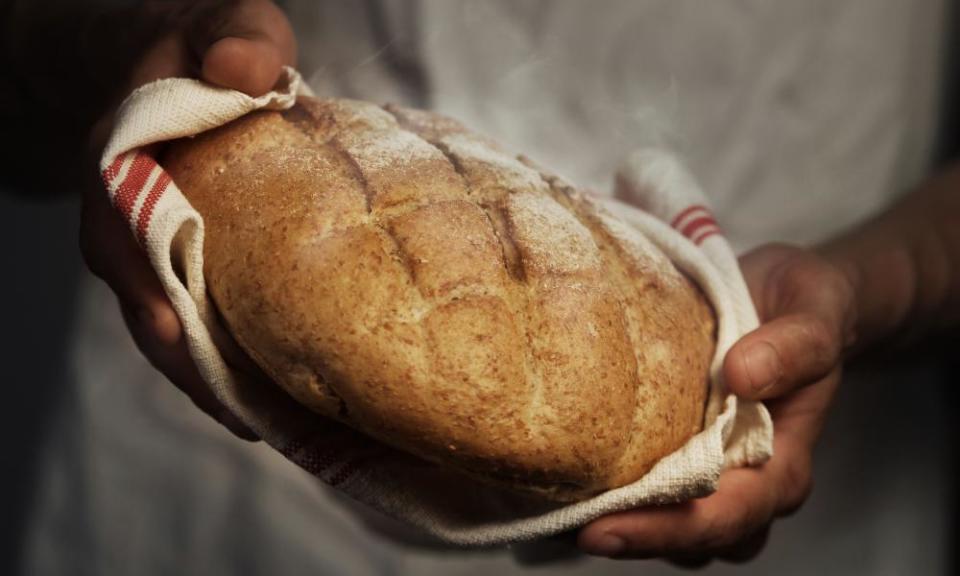Victory over Pret a Manger means the fight against misleading labels is on

When it comes to labelling, food retailers run rings around their customers, and mainly get away with it. They weave a lexicon of feelgood terms – “fresh”, “handmade”, “artisan”, “local”, “farmhouse”, “healthy”, “natural” – into their marketing messages, which just happens to encourage us to assume that two and two makes five, or even six or seven. It’s known as the halo effect: by highlighting one appealing selling point you erect a canopy of goodness around the entirety of the product, irrespective of whether it is merited.
Challenging such terms is tough. Regulations covering them are sketchy and open to legal argument on a case-by-case basis, which makes the Real Bread Campaign’s latest victory against the Pret a Manger chain all the more impressive.
Most people believed Pret a Manger when it trumpeted that it shunned “the obscure chemicals, additives and preservatives common to so much of the ‘prepared’ and ‘fast’ food on the market today”. But in fact some of its breads contain artificial additives commonly used in industrial bakeries, such as E472e (diacetyl tartaric acid esters of mono- and diglycerides) and E471 (mono- and diglycerides of fatty acids), that most certainly don’t fit snugly with any commonsense definition of that term.
The Real Bread Campaign called Pret out by complaining to the Advertising Standards Authority, and won. The ASA rejected the chain’s defence that this statement should be read by consumers as more of an aspiration, “an ideal state, or their ultimate goal”, not a hard guarantee. It told Pret to ensure its ads did not imply food was “natural” unless its products and ingredients were in line with consumer expectations of that term.
This successful complaint from the Real Bread Campaign reinforces the crucial distinction between small, independent bakeries that genuinely make all-natural bread using traditional ingredients and methods, and industrial imposters. It also constitutes a highly effective citizen-organised act of resistance against Big Food’s appropriation of the language of small-scale food production.
An informed appreciation of our food's composition is surely a requisite of exerting some sovereignty over what we eat
But is it really such a big deal if retailers are less than candid about a few E-numbers? In the modern food system, where supermarkets now routinely and legally market products from nonexistent “fake farms”, it has been tempting to dismiss any attempt to restore authenticity to nebulous terms such as “natural” as futile or irrelevant. Yet an informed appreciation of the nitty-gritty composition of our food is surely a requisite of exerting some personal sovereignty over what we eat?
While every food additive has been approved by regulators for use in specified “safe” quantities, no systematic research has been done into any cocktail effect that might cumulatively harm our health. Since the 1960s, the population has played laboratory rat in an agro-chemical food experiment involving the regular consumption of unprecedented combinations of hi-tech ingredients and additives. Such products now form the basis of lots of people’s diets. Others prefer to stick with tried and tested “natural” foods made by traditional methods because they quite legitimately interpret the presence of multiple additives in products as signifiers of debased factory food, mainly used for purposes of fakery: adding volume, ensuring “machinability”, extending shelf life, disguising off-flavours, adding phoney colour to compensate for the loss of natural ones, and more. That is their prerogative, just as it is their absolute right to be alerted to the presence of additives in any products they might buy.
Proponents of our industrial food system slur defenders of traditional food standards and practices as luddites, hopeless romantics, scientifically incompetent scaremongers railing against technological progress. They would love to tie us up in a never-ending philosophical debate about what “natural” means. The Food Safety Authority of Ireland has made the best stab at a definition: “The ingredients are formed by nature and are not significantly interfered with by man.” But even then, the question of what constitutes “significant interference” is thorny. So-called natural flavourings are approved under current regulations yet the physical, enzymatic and microbiological processes used to make them would scarcely fit most people’s understanding of “natural”. We live in a world where big food manufacturers and retailers constantly use our food vocabulary to fit their own agenda. The word “natural” is in the frontline of our battle to reclaim it.
• Joanna Blythman is a food writer, investigative journalist and broadcaster. She is the author of Swallow This: Serving up the food industry’s darkest secrets

 Yahoo News
Yahoo News 